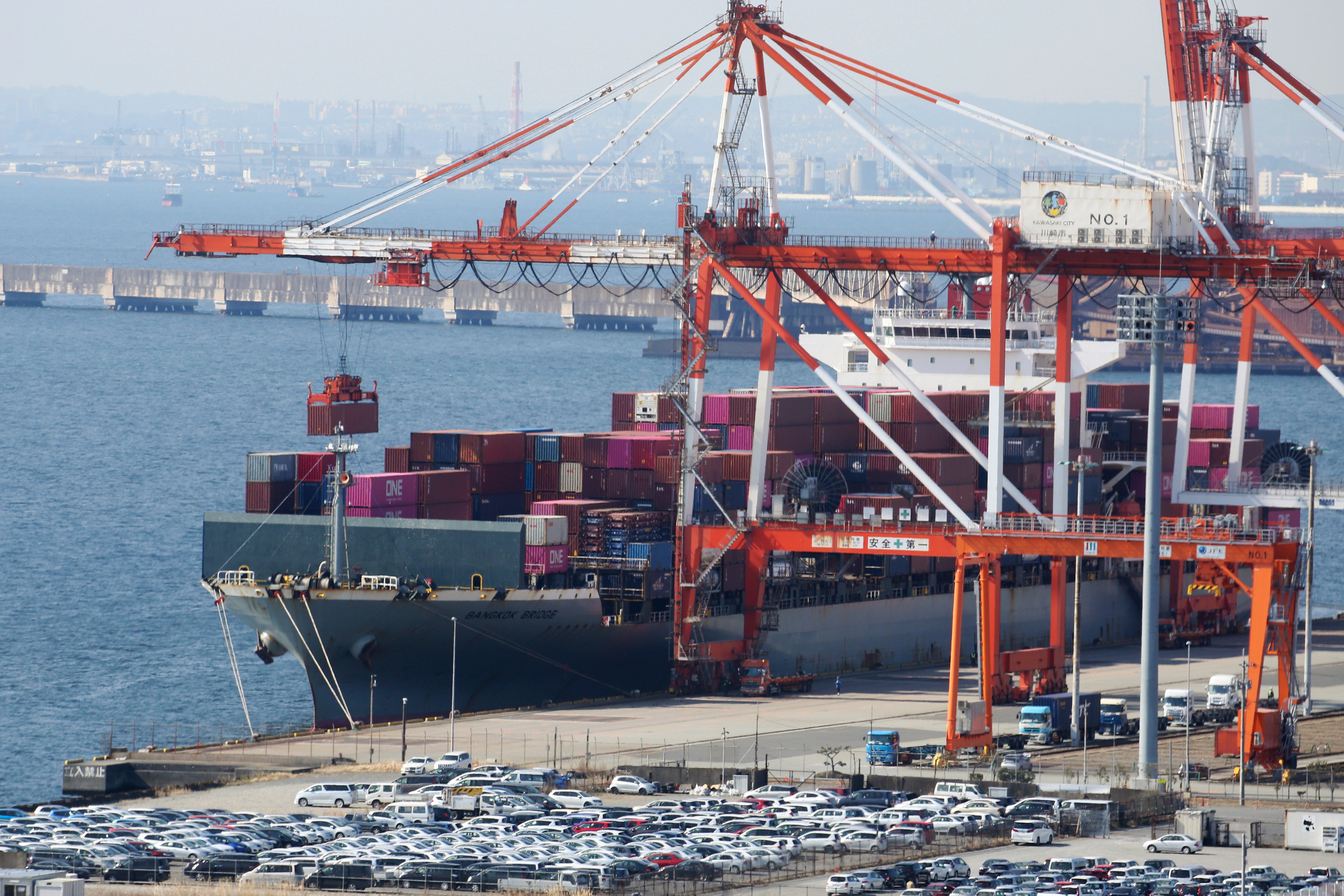Japan trade deficit soars on weak yen, high oil prices
Japan has reported its trade deficit surged to over 2 trillion yen ($15 billion) in November as higher costs for oil and a weak yen combined to push imports higher

Your support helps us to tell the story
From reproductive rights to climate change to Big Tech, The Independent is on the ground when the story is developing. Whether it's investigating the financials of Elon Musk's pro-Trump PAC or producing our latest documentary, 'The A Word', which shines a light on the American women fighting for reproductive rights, we know how important it is to parse out the facts from the messaging.
At such a critical moment in US history, we need reporters on the ground. Your donation allows us to keep sending journalists to speak to both sides of the story.
The Independent is trusted by Americans across the entire political spectrum. And unlike many other quality news outlets, we choose not to lock Americans out of our reporting and analysis with paywalls. We believe quality journalism should be available to everyone, paid for by those who can afford it.
Your support makes all the difference.Japan's trade deficit surged to over 2 trillion yen ($15 billion) in November as higher costs for oil and a weak yen combined to push imports sharply higher.
It was the 16th straight month of red ink and a record high for the month of November. The country will likely post a record deficit for the year.
The deficit for November was double that for the same month the year before. Exports rose 20% to 8.8 trillion yen ($64 billion) while imports surged 30% from a year earlier to 10.9 trillion yen ($80 billion).
The world's third-largest economy has been recovering after Japan gradually loosened anti-virus precautions in the second half of the year and reopened its borders to foreign tourists in October.
But its export sector is under pressure from rising costs, shortages of computer chips and some other industrial inputs and weakening demand as central banks in major markets like the United States and European Union impose interest rate hikes to slow business activity and tame inflation.
Shipments to China rose only 3.5%, as the country remained in the throes of its “zero-COVID" restrictions, which hurt business activity including manufacturing. Exports to all of Asia climbed nearly 12%.
Japan’s exports to the U.S. jumped nearly 33%, with the trade surplus rising 54%.
Exports of vehicles were sharply higher as shortages of computer chips and other parts eased. Meanwhile, imports of coal, gas and other fuels surged more than 60%, boosted by higher prices and the weaker yen.
Japan’s imports from Russia dropped 36% in November, with a sharp decline in shipments of oil, natural gas and timber. Tokyo has joined other democracies in imposing sanctions against Moscow for its war on Ukraine, though it has said it will continue to import natural gas from a joint project in Sakhalin in Russia's Far East.
A weaker currency makes imports more expensive in yen-denominated terms. Japan's currency has lost value against the U.S. dollar and other currencies as the Federal Reserve and other central banks have raised interest rates while the Bank of Japan has kept its key interest rate at an ultra-low minus 0.1%. Japan's domestic inflation has remained relatively low and with recessions looming elsewhere, the concern is that higher rates might derail the country's fragile economic recovery.